Check your knowledge of level sensors in industrial instrumentation with these MCQs. Explore questions and answers on level measuring sensor types, working mechanisms, and real-world applications.
Level Sensors MCQ
This level sensor video provides all the explanations for the given multiple-choice questions. We recommend you watch the below video and test your skills.
Question 1
What principle does a float level sensor use to measure liquid levels?
A. Displacement
B. Buoyancy
C. Capacitance
D. Conductivity
Show the Answer
Buoyancy
Question 2
Which level measuring instrument is suitable for highly viscous liquids?
A. Ultrasonic level sensor
B. Capacitance level sensor
C. Radar level sensor
D. None of the options
Show the Answer
Radar level sensor
Question 3
What type of level measuring device uses the time-of-flight principle?
A. Ultrasonic level sensor
C. Capacitive level sensor
D. Conductivity level sensor
Show the Answer
Ultrasonic level sensor
Question 4
How does a capacitance level sensor measure the level of a liquid?
A. By detecting buoyancy changes
B. By measuring changes in electrical capacitance
C. By time-of-flight
D. By measuring conductivity
Show the Answer
By measuring changes in electrical capacitance
Question 5
What is the primary advantage of using a non-contact radar level sensor?
A. Cost-effectiveness
B. High maintenance
C. High accuracy
D. Susceptibility to interference
Show the Answer
High accuracy
Question 6
Which level measuring instrument can be affected by foam and turbulence in the liquid?
B. Ultrasonic level sensor
C. Capacitance level sensor
D. Conductivity level sensor
Show the Answer
Ultrasonic level sensor
Question 7
What is the main benefit of using a guided wave radar level sensor over a non-contact radar sensor?
A. Lower cost
B. Higher accuracy
C. Immunity to vapor and foam
D. Easier installation
Show the Answer
Immunity to vapor and foam
Question 8
What is the main advantage of using a laser level sensor for measuring liquid levels?
A. Cost-effectiveness
B. High temperature resistance
C. High precision and long-range
D. Immunity to electrical interference
Show the Answer
High precision and long-range
Question 9
Which type of level measuring instrument is best suited for continuous level measurement in a tank?
A. Float switch
B. Ultrasonic level sensor
C. Capacitance probe
Show the Answer
Radar level sensor
Question 10
What is a key disadvantage of using a float level sensor?
A. High cost
B. Complex installation
C. Susceptibility to mechanical failure
D. Limited to conductive liquids
Show the Answer
Susceptibility to mechanical failure
Question 11
How does an ultrasonic level sensor differ from a radar level sensor?
A. Uses sound waves instead of microwaves
B. Measures weight instead of level
C. Only for conductive liquids
D. Requires physical contact with liquid
Show the Answer
Uses sound waves instead of microwaves
Question 12
Which level measuring instrument is ideal for corrosive liquid applications?
A. Float level sensor
B. Conductivity level sensor
C. Capacitance level sensor
D. Non-contact radar level sensor
Show the Answer
Non-contact radar level sensor
Question 13
In what application is a vibrating fork level sensor typically used?
A. Measuring solids in a tank
B. Measuring liquid flow rate
C. Detecting liquid levels in small containers
D. Measuring air pressure
Show the Answer
Detecting liquid levels in small containers
Question 14
What type of level sensor is least affected by changes in temperature and pressure?
A. Float level sensor
B. Hydrostatic pressure sensor
D. Guided wave radar sensor
Show the Answer
Guided wave radar sensor
Question 15
How does a bubbler level sensor measure the level of a liquid?
A. By measuring electrical resistance
B. By measuring the pressure of bubbles
C. By measuring buoyancy force
D. By measuring the size of bubbles
Show the Answer
By measuring the pressure of bubbles
Question 16
Which principle does a magnetostrictive level sensor use to measure liquid levels?
A. Time-of-flight
B. Electromagnetic field
C. Displacement
D. Magnetic field interaction
Show the Answer
Magnetic field interaction
Question 17
What is a significant advantage of using optical level sensors?
A. Cost-effectiveness
B. Long-range measurement
C. High temperature resistance
D. Small size and simplicity
Show the Answer
Small size and simplicity
Question 18
How does a guided wave radar sensor handle the presence of heavy vapors?
A. It does not ignore vapors
B. Uses a purging system
C. Measures density
D. Uses a probe to guide signals
Show the Answer
Uses a probe to guide signals
Question 19
Which level measuring instrument is best for detecting the interface between two immiscible liquids?
B. Capacitance level sensor
C. Displacer level sensor
D. Radar level sensor
Show the Answer
Displacer level sensor
Question 20
How does a tuning fork level sensor operate?
A. By detecting changes in frequency
B. By measuring pressure
C. By measuring buoyancy
D. By detecting capacitance changes
Show the Answer
By detecting changes in frequency
Question 21
Which level sensor technology is most suitable for slurry and viscous fluids?
A. Conductivity level sensor
B. Pressure based level sensor
C. Float based level sensor
Show the Answer
Bubbler level sensor
Question 22
Which type of level sensor is most suitable for non-invasive measurement through tank walls?
A. Float level sensor
B. Radar level sensor
C. Capacitance level sensor
D. Nuclear level gauge
Show the Answer
Nuclear level gauge
Question 23
How does a resistive chain level sensor measure the liquid level?
A. By detecting changes in resistance
B. By measuring capacitance
C. By time-of-flight
D. By buoyancy force
Show the Answer
By detecting changes in resistance
Question 24
Which level sensor is best for measuring the levels of granulated solids?
A. Capacitance level sensor
B. Radar level sensor
C. Vibrating fork level sensor
D. Ultrasonic level sensor
Show the Answer
Vibrating fork level sensor
Question 25
What is a key disadvantage of using a nuclear level gauge?
A. High accuracy
B. Non-invasive measurement
C. Regulatory and safety concerns
D. Suitable for harsh conditions
Show the Answer
Regulatory and safety concerns
Question 26
How does a differential pressure level transmitter measure liquid level?
A. By detecting ultrasonic waves
B. By measuring pressure difference
C. By buoyancy changes
D. By measuring magnetic field
Show the Answer
By measuring pressure difference
Question 27
Which level sensor is most suitable for applications involving rapid level changes?
A. Capacitance level sensor
B. Ultrasonic level sensor
C. Radar level sensor
D. Conductivity level sensor
Show the Answer
Radar level sensor
Question 28
What is the main advantage of using a non-contact ultrasonic level sensor?
A. High cost
B. Complex installation
C. Measures weight
D. No physical contact with liquid
Show the Answer
No physical contact with liquid
Question 29
In what scenario is a conductive level sensor not recommended?
A. Measuring water levels
B. Detecting levels in conductive liquids
C. Measuring oil levels
D. Monitoring chemical tanks
Show the Answer
Measuring oil levels
Question 30
Which level measuring technology is most affected by changes in the liquid’s dielectric constant?
A. Radar level sensor
B. Ultrasonic level sensor
C. Capacitance level sensor
D. Hydrostatic pressure sensor
Show the Answer
Capacitance level sensor
Read Next:
- Guided Wave Radar Questions and Answers
- Ultrasonic Sensors Objective Questions
- Level Transmitter Problems Troubleshooting
- Level Measurement Instruments Comparison
- Drum Level Compensation and Range Calculation
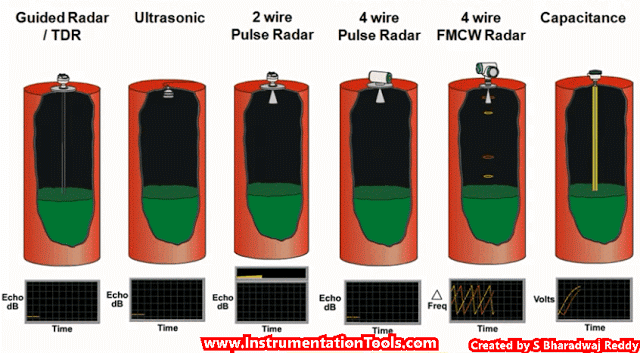
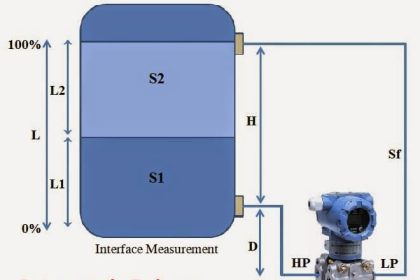
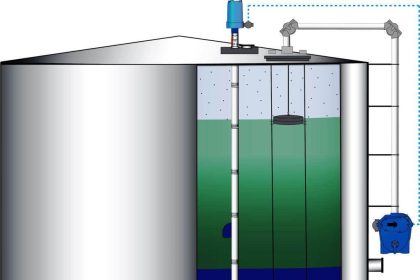
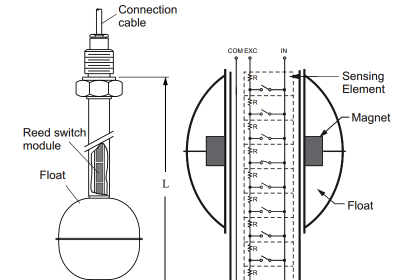
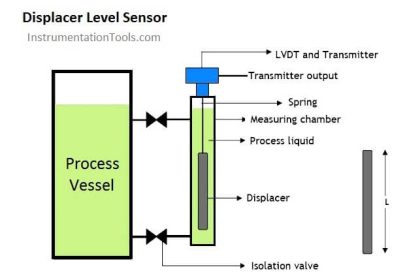
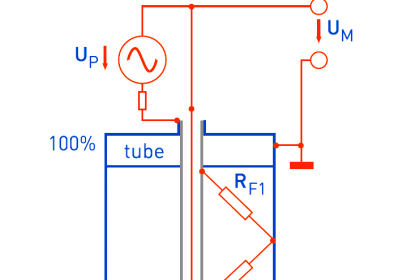
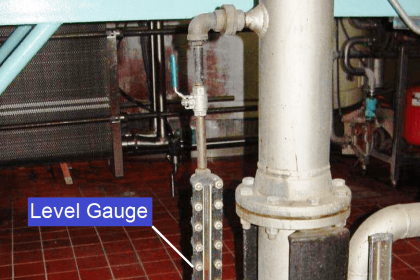
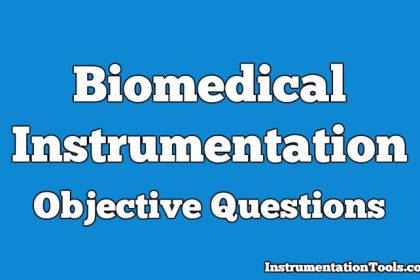
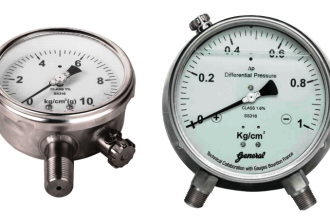
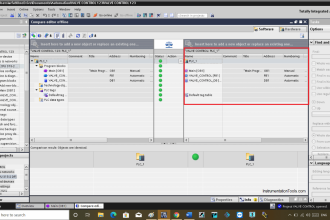
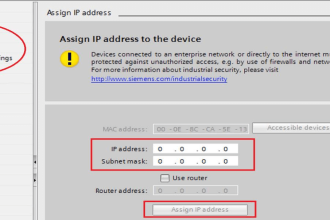
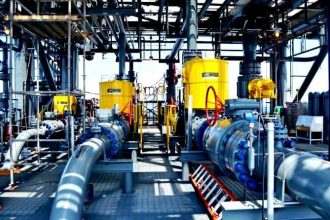
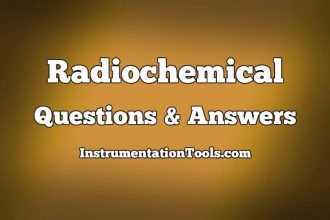
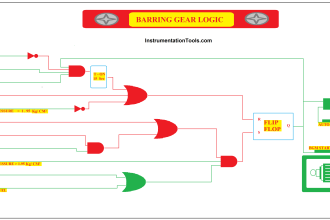
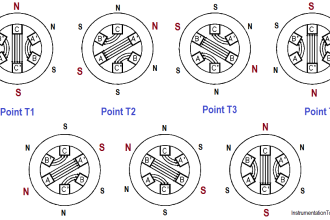


instrumentation and control ????????️
instrumentation tools your best Apps